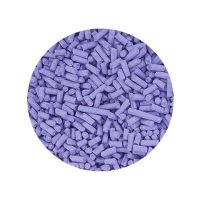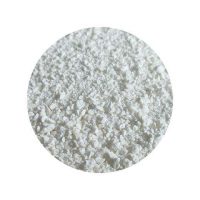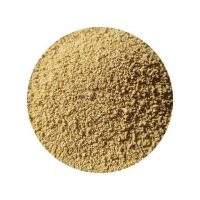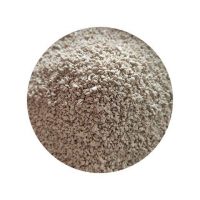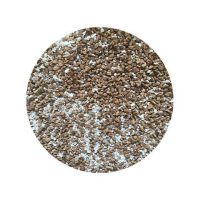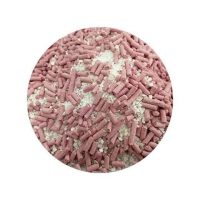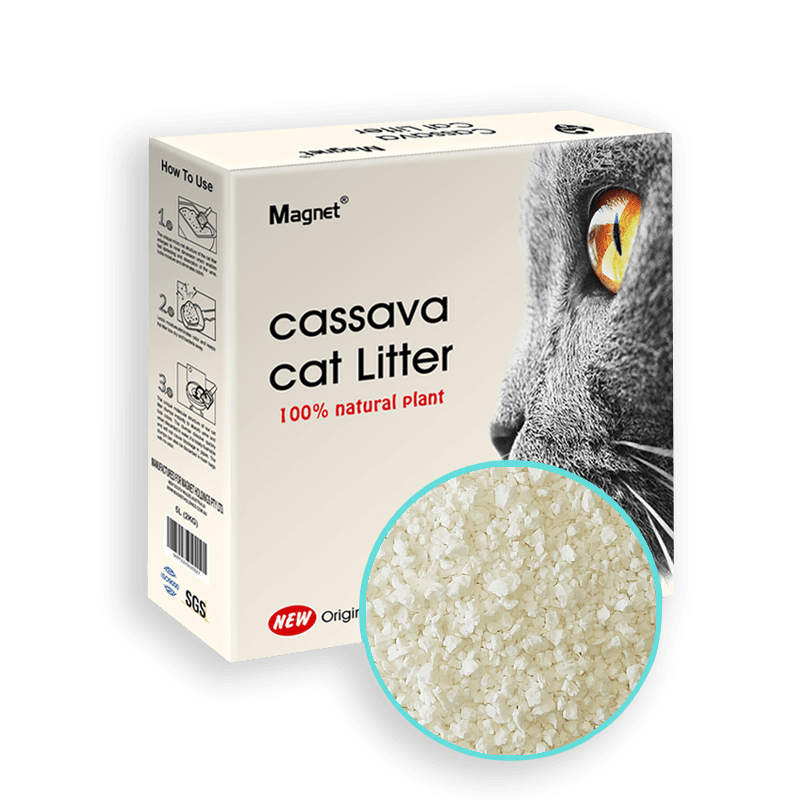Are you tired of dealing with messy litter boxes and unpleasant odors? Choosing the right cat litter is crucial for maintaining a clean and healthy environment for both you and your feline friend.
In this blog post, we’ll explore the key factors to consider when selecting the best cat litter, including your cat’s preferences, the type of litter, and your budget. With the right information, you can find the perfect litter to keep your cat happy and your home smelling fresh.
How to Choose Cat Litter?
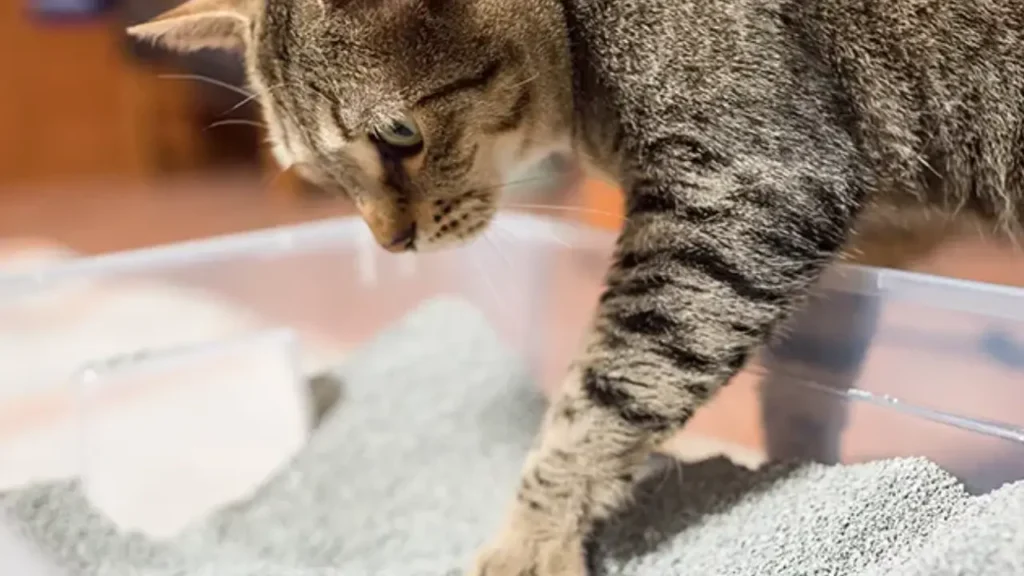
Here are some tips and tricks for your selection of cat litter.
1. Cat’s Preferences
- Odor Sensitivity: Some cats are more sensitive to odors than others. If your cat is particularly sensitive, look for litters with strong odor control properties.
- Texture: Cats have different preferences for the texture of their litter. Some prefer a soft, sandy texture, while others may prefer a coarser, clumping litter. Experiment with different textures to see what your cat likes best.
- Tracking: Some cats are more prone to tracking litter around the house. If this is a problem, consider using a non-tracking or low-tracking litter.
2. Litter Type
- Clay-Based: Clay-based litters are the most common type. They are known for their clumping ability and odor control. However, some cats may be sensitive to the dust that can be associated with clay litters.
- Silica Gel: Silica gel litters are made from tiny crystals that absorb moisture and odors. They are often dust-free and can be a good option for cats with respiratory sensitivities. However, silica gel litters can be more expensive than clay-based litters.
- Natural Litters: Natural litters are made from plant-based materials like pine, wheat, or recycled paper. They are often considered more environmentally friendly than clay or silica litters. However, they may not have the same odor control or clumping ability as traditional litters.
3. Clumping Ability
- Clumping: Clumping litters make cleanup easier by forming clumps around waste. This allows you to scoop out the clumps and leave the rest of the litter clean.
- Non-Clumping: Non-clumping litters do not form clumps. You’ll need to scoop out the entire litter box on a regular basis. Non-clumping litters can be a good option for cats with sensitive paws or urinary issues.
4. Odor Control
- Odor Absorbers: Some litters contain odor absorbers, such as baking soda or activated carbon. These can help to neutralize unpleasant odors.
- Scented vs. Unscented: If you prefer a scented litter, make sure to choose a fragrance that your cat won’t find offensive. Some cats may be sensitive to strong fragrances.
5. Dust Content
- Dust-Free: Dust-free litters can help to reduce respiratory irritation for both you and your cat. If your cat has allergies or respiratory problems, it’s important to choose a dust-free litter.
6. Sustainability
- Eco-Friendly: If environmental sustainability is important to you, consider using a natural or recycled litter. These types of litters are often made from plant-based materials or recycled paper.
By carefully considering these factors, you can choose the best cat litter for your feline friend and create a clean and healthy environment for both of you.
Best Cat Litter Material
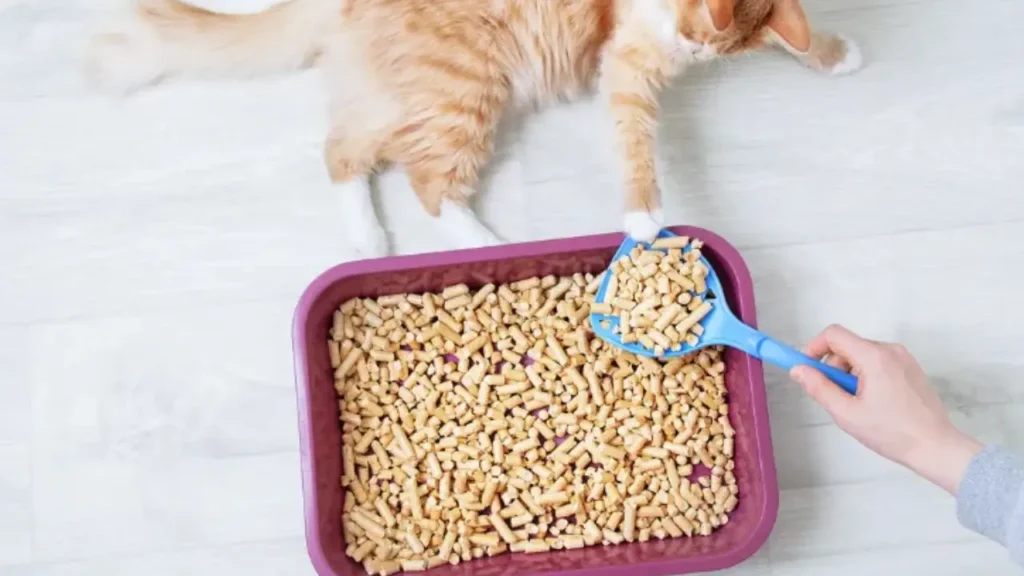
There are a few materials commonly used for cat litter boxes:
1. Plastic: This is the most common material for cat litter boxes. Plastic is durable, easy to clean, and comes in a variety of sizes and styles.
2. Ceramic: Ceramic litter boxes are often considered more stylish and can add a decorative touch to your home. They are also durable and easy to clean. However, they can be heavier and more expensive than plastic options.
3. Glass: Glass litter boxes are a relatively new option. They are non-porous and easy to clean, but they can be heavy and fragile.
4. Stainless Steel: Stainless steel litter boxes are durable, easy to clean, and rust-resistant. However, they can be expensive and may not be as aesthetically pleasing as other options.
5. Wooden: Wooden litter boxes can add a natural touch to your home. However, they require more maintenance to prevent moisture damage and odor buildup.
Ultimately, the best material for your cat litter box will depend on your personal preferences and budget. Consider the following factors when making your decision:
- Durability: How long do you want the litter box to last?
- Ease of cleaning: How easy is it to clean the litter box?
- Aesthetics: How important is the appearance of the litter box to you?
- Cost: How much are you willing to spend on a litter box?
By carefully considering these factors, you can choose the best material for your cat litter box.
Types of Cat Litter
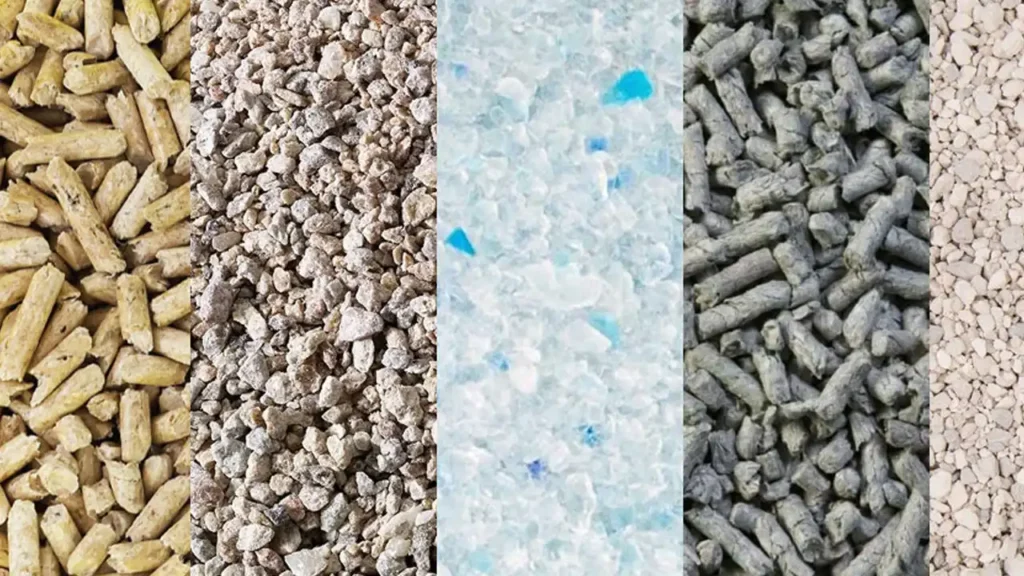
There are many different types of cat litter available, each with its own unique properties and benefits. Here are some of the most common types:
1. Clay-based litter: This is the most common type of cat litter, and it’s made from clay minerals. Clay-based litter is known for its clumping ability and odor control. It’s also relatively affordable.
2. Silica gel litter: Silica gel litter is made from tiny crystals that absorb moisture and odors. It’s often used in crystal cat litter boxes. Silica gel litter is low-dust and can be a good choice for cats with respiratory problems. However, it can be more expensive than clay-based litter.
3. Natural litter: Natural litter is made from plant-based materials, such as pine, wheat, or corn. It’s often considered to be more environmentally friendly than clay-based or silica gel litter. Natural litter can also be good for cats with sensitive skin.
4. Recycled paper litter: Recycled paper litter is made from recycled paper. It’s a good choice for people who want to be environmentally friendly. Recycled paper litter is also highly absorbent and can help to control odors.
5. Feline pine litter: Feline pine litter is made from pinewood. It’s a natural option that is highly absorbent and can help to control odors. Feline pine litter is also flushable, which can be convenient.
6. Wheat germ litter: Wheat germ litter is made from wheat germ. It’s a natural option that is highly absorbent and can help to control odors. Wheat germ litter is also a good source of fiber for cats.
7. Corn litter: Corn litter is made from corn kernels. It’s a natural option that is highly absorbent and can help to control odors. Corn litter is also a good source of fiber for cats.
8. Walnut shell litter: Walnut shell litter is made from walnut shells. It’s a natural option that is highly absorbent and can help to control odors. Walnut shell litter is also a good source of fiber for cats.
9. Recycled newspaper litter: Recycled newspaper litter is made from recycled newspaper. It’s a natural option that is highly absorbent and can help to control odors. Recycled newspaper litter is also a good choice for people who want to be environmentally friendly.
10. Coconut coir litter: Coconut coir litter is made from the fibrous outer husk of the coconut. It’s a natural option that is highly absorbent and can help to control odors. Coconut coir litter is also a good choice for people who want to be environmentally friendly.
When choosing a cat litter, it’s important to consider your cat’s needs and preferences. Some cats may prefer a certain type of litter, while others may be more sensitive to dust or allergens. You should also consider the cost of the litter and how easy it is to clean up.
Conclusion
Choosing the right cat litter is essential for maintaining a clean and healthy environment for your feline friend. By considering factors such as your cat’s preferences, the type of litter, and your budget, you can find the perfect option to suit your needs.
Remember to:
- Consider your cat’s preferences and sensitivities.
- Evaluate the type of litter that best suits your needs.
- Factor in your budget and environmental concerns.
- Monitor your cat’s behavior and preferences to ensure you’ve made the right choice.
Are you looking for high-quality, affordable cat litter to keep your feline friend happy and healthy? Contact us today for a quote on our wholesale cat litter options!


